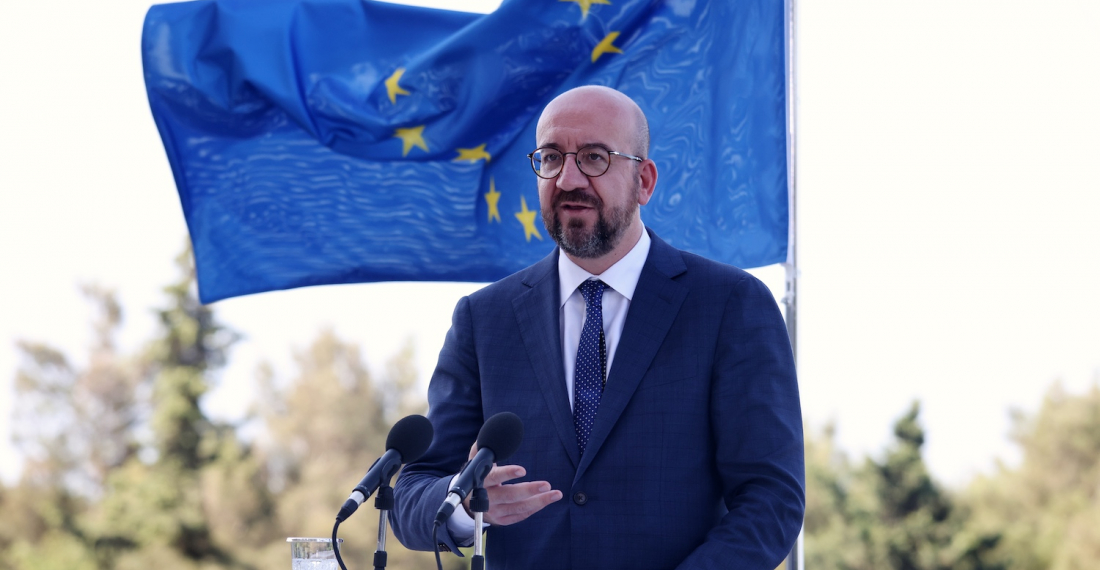The transformation of the status quo caused by last year’s 44-day war appears to have left the EU out of the South Caucasus, with Turkey and Russia now firmly installed in positions of influence. In this piece for KarabakhSpace.eu, Javadbay Khalilzade identifies several opportunities for the EU to engage with the region and ensure its position there for the foreseeable future.
The geopolitical and regional rivalry in the South Caucasus has been taken to a new level with a transformation of the status quo following the Second Karabakh war in 2020. Whereas Turkey and Russia consolidated their positions in the region, the Islamic Republic of Iran has been removed from the new balance. Another regional player, the EU, and its capacity to influence developments during the war and post-war period, has also been restricted. Despite the intense engagement with Georgia, the EU has a limited role in political developments in the South Caucasus, particularly in Azerbaijan and Armenia. While the former resists any structural reforms in the name of securing sovereignty, the latter has official alignment with Russia, a regional competitor of the EU. Whilst with his July visit, European Council President Charles Michel showed the EU's will to be an active player in the region, its post-war engagement with the region will define the capacity and position of the EU in the South Caucasus going forward.
As last year's war illustrated, the EU has a limited role in the region, but the post-war period presents opportunities for it to engage actively. Azerbaijan has liberated its internationally recognised territories, and is eager to regain the rest of the territories under the control of the de facto Nagorno-Karabakh authorities and to define the future of the Armenian community in the region through peaceful means. The prospect of opening of borders and establishing diplomatic relations between Azerbaijan and Armenia looks promising.
The EU can provide and assist through its experience, and act as a venue for this political transformation. The most urgent issues to be solved between the countries are the handover of maps of mined territories in formerly occupied regions and the return of the Armenian captives currently held by Azerbaijan. In June through the support of Georgia, the US, and the EU, there was an exchange of captives for maps of certain mined territories. Other repatriation of prisoners has taken place through the good offices of the Russian military. However, as of yet, Armenia has not given all the maps nor Azerbaijan returned all captives. This issue needs to be resolved urgently to transform relations between the two and prevent civilians' deaths in the formerly occupied territories, accelerate reconstruction and return displaced peoples, and unite captives with their families.
Moreover, the EU needs to engage with the issue of opening the borders between Turkey and Armenia, as it did in 2009, which will help the region engage with the West and transform the relations between Turkey, Armenia, and Azerbaijan. Additionally, the opening of the borders would boost economic relations and transit routes that connect the EU to Central Asia, through Turkey, Armenia, and Azerbaijan.
The third area that the EU could engage in is the reconstruction of the formerly occupied territories of Azerbaijan and the construction of infrastructure that connects Armenia and Azerbaijan. During his July visit to the South Caucasus, President Charles Michel confirmed a €2.6 billion EU financial package for Armenia to build infrastructure. However, Azerbaijan was promised only €140 million, which is very small amount relative to the Armenia’s package and considering the burden of reconstructing the territories liberated by Azerbaijan. Considering that the seven liberated adjacent regions of Azerbaijan are internationally recognised Azerbaijani territory – a fact recognised even by Armenia – there are no legal and structural obstacles that prevent the EU from investing and taking part in the reconstruction process. This would also increase the credibility of the EU at the national level in Azerbaijan. The EU's economic integration and investment could transform economic relations between Armenia and Azerbaijan.
Lastly, as Michel stated during his visit, the EU could help in the delimitation of borders between Armenia and Azerbaijan. Due to the conflict, state borders have not been drawn between two states in the last 30 years. The EU could help solve these problems as it has experience with the European Union Border Assistant Mission to Moldova and Ukraine (EUBAM), which monitors trade flows, prevents trafficking, and illegal trans-border activities between Moldova and Ukraine in areas that the de-facto authorities in Transnistria (the self-declared Pridnestrovian Moldavian Republic) control. The EUBAM experience helped transform economic relations, and Transnistria recognised Moldova's authority in trade with the EU; similar policies could transform the flow of trade and secure openings of borders between Azerbaijan and Armenia. This is practical and applicable as the EUBAM co-ordinate between the Moldavian and Ukrainian border and custom services. This kind of initiative could help the flow of trade and transport between Armenia and Azerbaijan. It could also pave the way for the future engagement with Armenian and Azerbaijani security and customs officials, and future integration of the region with the EU.
Indeed, some of these processes are on their way. However, if the EU is eager to engage with the South Caucasus and integrate with the region further, it needs to push forward and play an active role in the solutions of these problems. Due to the conflict, the EU aimed to conduct balanced relations with the two countries, and it has limited influence in the region. However, the post-war period offers new opportunities to the EU, and its decisiveness will define the shape of its position in the South Caucasus.
source: Javadbay Khalilzada is a PhD Candidate at the Department of Political Science, Kent State University. Khalilzada's main areas of research are international relations, interstate conflict analysis, politics of Azerbaijan, Russia, Turkey, and the Post-Soviet Caucasus.
photo: The president of the European Council, Charles Michel, during his visit to Baku, 18 July 2021; The Press Service of the European Council



